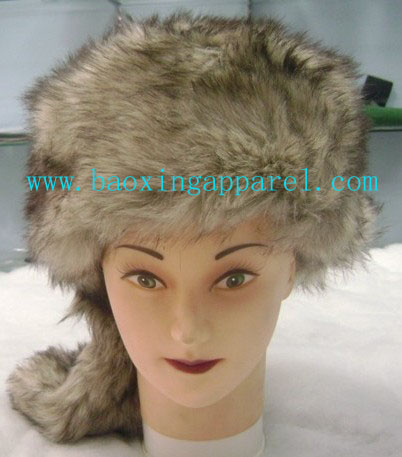 For anyone who has ever bought a winter coat, hat or boots, you should be more than familiar with faux fur. This amazing creation has evolved tremendously since its inception. No longer is it just additional trim on fashion items but whole garments are being crafted out of it. It’s less expensive, easier to clean and animal friendly compared to natural fur and it’s being used more and more by major fashion houses.
For anyone who has ever bought a winter coat, hat or boots, you should be more than familiar with faux fur. This amazing creation has evolved tremendously since its inception. No longer is it just additional trim on fashion items but whole garments are being crafted out of it. It’s less expensive, easier to clean and animal friendly compared to natural fur and it’s being used more and more by major fashion houses.Fake fur, also called fun fur or faux fur, is any material made of synthetic fibers designed to resemble fur, normally as part of a piece of clothing. It was first introduced in 1929 and has been commercially available since the 1950s, but its increasing popularity has been credited to its promotion by animal rights and animal welfare organizations which claim that it is an animal-friendly alternative to traditional fur clothing.

Faux Fur Bolero
Faux fur is not only used in clothing, but also for stuffed animals, fashion accessory and home decorations like pillows. It is also sometimes used for craft projects because it can be sewn on a sewing machine. Natural fur is generally thicker and requires a special machine, hand sewing or an awl to sew it. Lately, fake fur has been increasingly used in the mainstream teen fashion, for example the stores Abercrombie & Fitch and American Eagle use it for trapper hats and jackets. In the Soviet, and now Russian Army, fish fur is used as a slang term for the fake fur used on winter clothing and the ubiquitous ushanka hats. Similarly, fashion design labels such as Ralph Lauren and Chanel have promoted the use of fake fur in their collections.
Because faux fur is 100% synthetic, it can distort and lose shape if worn or washed too much. Faux fur can become affected by heat, which may damage the pile. The coat “looks like a wet cat”, “lost its fur look”, are common issues with faux fur pile. The resin used to add luster and body to pile fabric maybe removed in normal wear or in dry cleaning. Loss of resin may make the pile more susceptible to distortion, matting, tufting and loss of body. Shrinkage may result in dry cleaning, even though the garment may have a label which reads “dry clean only.” When the pile distorts, the garment may appear to have color loss due to change in the reflection of light. Imitation fur pile coats may be trimmed with imitation leather or suede. These trimmings pose potential problems of peeling, stiffening and cracking. Because of these issues you are going to want to stay away from dry cleaning. Your going to want to only use light wet cleaning and very low drying. To maintain the garments longevity, spot cleaning and good preventative care will work the best. To dry your garment after spot cleaning, you can use a blow dryer on low with a brush. This will ensure that you don’t get any matting and distortion of the faux fur pile. For Professional help, give us a call. Our trained professionals can help with if your afraid of doing something wrong.





No comments:
Post a Comment